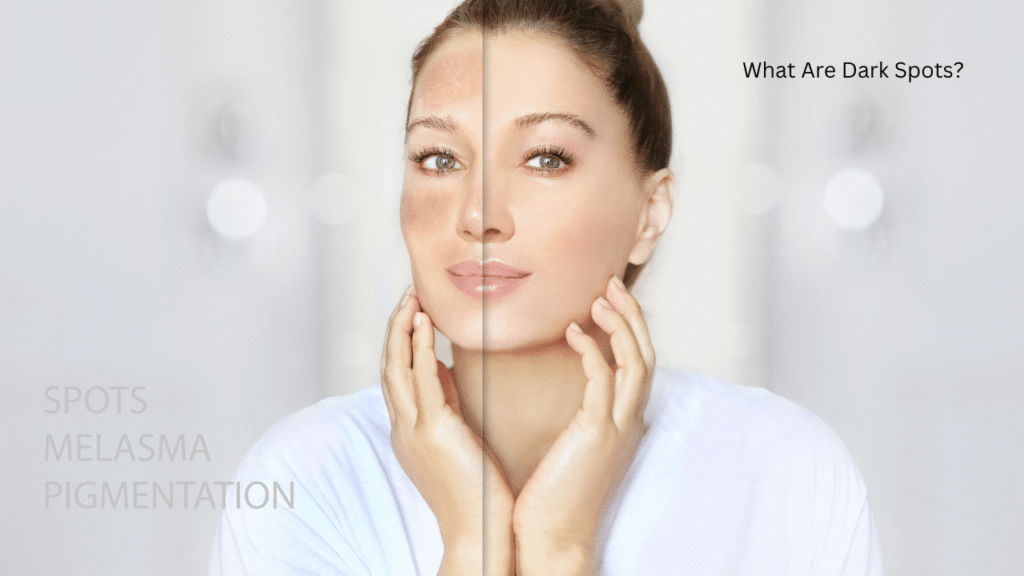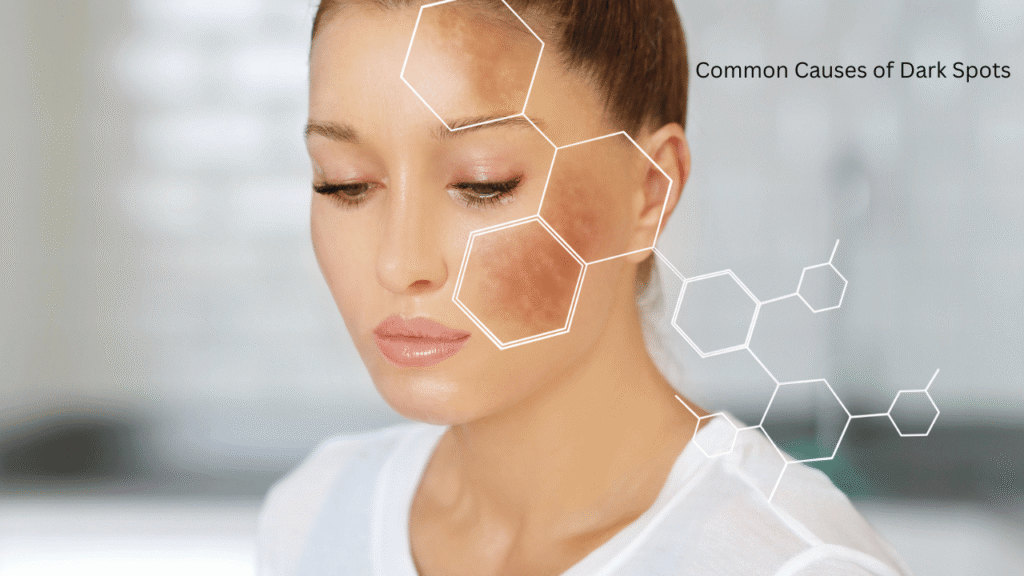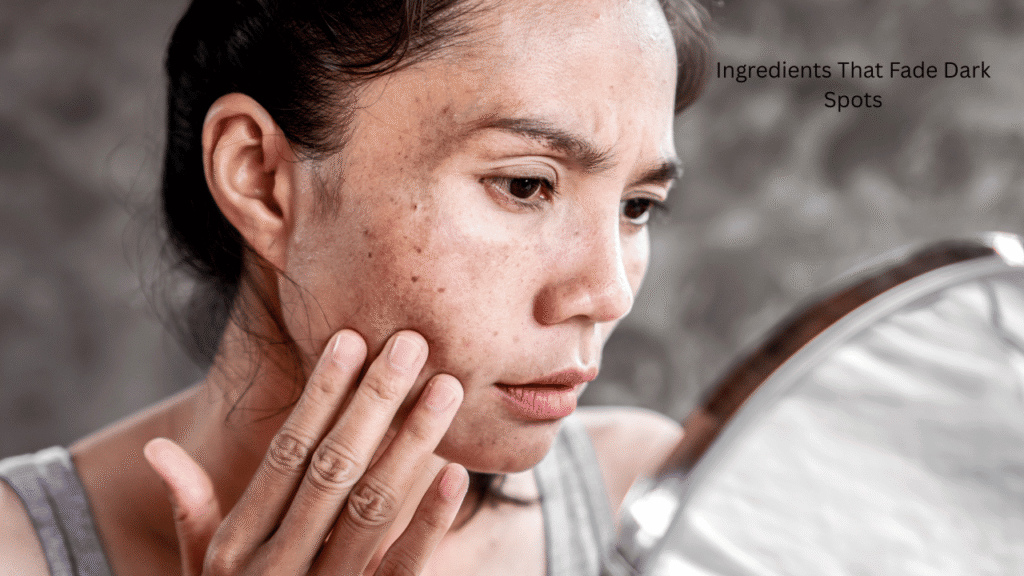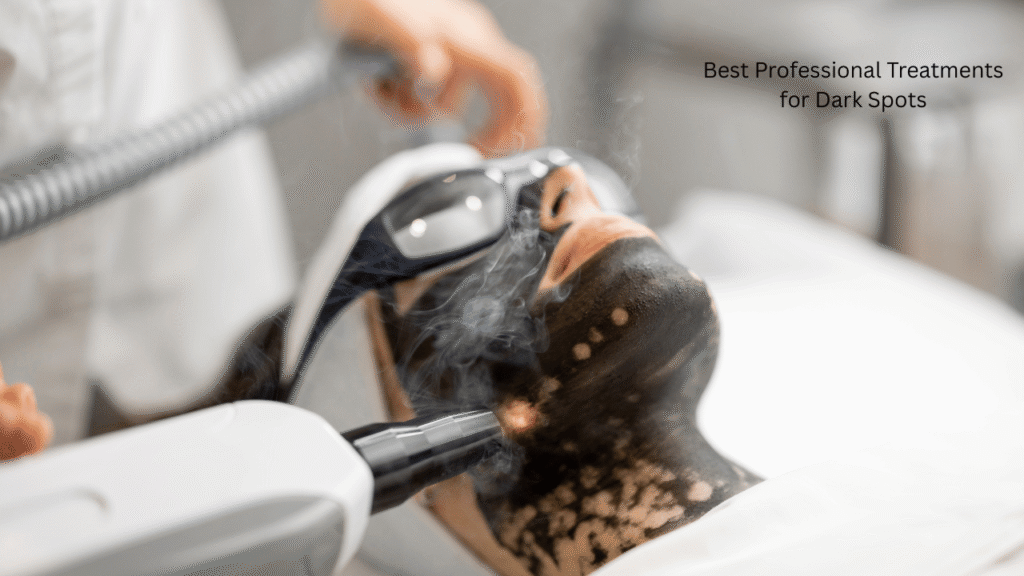Remedies for Dark Spots: How to Fade Hyperpigmentation and Achieve Even-Toned Skin
Remedies for Dark Spots: Dark spots—also known as hyperpigmentation—are one of the most common skin concerns affecting people of all skin tones and ages. Whether they’re caused by acne, sun exposure, aging, or hormonal changes, dark spots can make your complexion appear uneven, dull, and tired. But the good news? With the right treatments, lifestyle changes, and patience, you can visibly fade dark spots and restore your skin’s natural glow.
In this comprehensive guide, we’ll explore everything you need to know about remedies for dark spots, including causes, ingredients that work, best skincare routines, professional options, natural home remedies, and prevention tips.
1. What Are Dark Spots?

Dark spots are areas of skin that become darker than the surrounding skin due to excess melanin production. They are also called hyperpigmentation, and they can vary in size, shape, and color—from light brown to deep black depending on skin tone.
They are not usually painful or dangerous but are often a cosmetic concern.
2. Common Causes of Dark Spots

Understanding the root cause helps in choosing the right remedy. The most common causes include:
- Post-inflammatory hyperpigmentation (PIH) from acne or injuries
- Sun exposure without SPF
- Hormonal changes, especially in women (melasma)
- Aging, which leads to age or liver spots
- Skin irritation from harsh products or treatments
- Allergic reactions or skin picking
3. Types of Hyperpigmentation

There are several different forms of dark spots:
🔹 Post-Inflammatory Hyperpigmentation (PIH)
Spots left after acne, cuts, or irritation; common in deeper skin tones.
🔹 Melasma
Hormonal pigmentation, often seen on cheeks and upper lip; triggered by pregnancy or birth control.
🔹 Sunspots (Solar Lentigines)
Dark spots from long-term sun exposure, common on face, shoulders, and hands.
🔹 Freckles
Genetic and sun-induced spots; not harmful but can darken with sun exposure.
4. Ingredients That Fade Dark Spots

Certain skincare ingredients have been proven effective in treating hyperpigmentation:
✅ Vitamin C
- Brightens and fades dark spots over time
- Antioxidant protection from sun damage
✅ Niacinamide (Vitamin B3)
- Reduces melanin production
- Calms inflammation and evens tone
✅ Retinoids (Retinol, Tretinoin)
- Speeds up cell turnover
- Reduces acne scars and dark spots
✅ Alpha Arbutin
- Gently lightens pigmentation
- Suitable for sensitive skin
✅ Kojic Acid
- Natural alternative to hydroquinone
- Derived from fungi
✅ Azelaic Acid
- Anti-inflammatory and brightening
- Great for acne-prone and rosacea-prone skin
✅ Glycolic Acid / Lactic Acid
- Chemical exfoliants (AHAs)
- Help fade surface-level spots
✅ Hydroquinone
- Gold standard for skin lightening
- Use under medical supervision
5. Skincare Routine for Fading Dark Spots

Consistency is key. Here’s a sample daily skincare routine focused on reducing dark spots:
Morning Routine
- Gentle Cleanser
- Don’t strip your skin; hydrating formulas are best
- Antioxidant Serum
- Vitamin C for brightening and free radical protection
- Niacinamide or Azelaic Acid
- Target discoloration and calm inflammation
- Moisturizer
- Lock in hydration to support healing
- Sunscreen (SPF 30 or higher)
- Most critical step—dark spots worsen with UV exposure
Evening Routine
- Double Cleanse (if wearing makeup or SPF)
- Oil cleanser + water-based cleanser
- Toner (optional)
- Exfoliating toners like glycolic acid can help
- Treatment Serum
- Retinol or alpha arbutin at night
- Moisturizer
- Support skin barrier recovery
- Spot Treatment
- Use targeted serums or creams only on affected areas
6. Best Professional Treatments for Dark Spots

If your dark spots are stubborn or widespread, consider professional treatments:
✨ Chemical Peels
- Use acids (like glycolic, salicylic, TCA) to exfoliate and fade spots
- Multiple sessions may be needed
✨ Microneedling
- Tiny needles trigger skin healing and reduce pigmentation
✨ Laser Therapy
- Targets pigment in the skin (like IPL or Fraxel)
- Effective but costly
✨ Microdermabrasion
- Mechanical exfoliation that resurfaces the skin
✨ Prescription Creams
- Hydroquinone, tretinoin, or corticosteroids prescribed by a dermatologist
7. Home & Natural Remedies for Dark Spots

Natural remedies can help mild pigmentation, but they work best alongside a proper skincare routine.
🌿 Aloe Vera
- Contains aloin, a natural depigmenting agent
- Apply fresh aloe gel at night
🌿 Licorice Extract
- Brightens and reduces inflammation
- Found in serums or masks
🌿 Green Tea
- Antioxidant-rich and calming
- Use as a toner or compress
🌿 Turmeric
- Curcumin helps reduce pigmentation
- Mix with yogurt and apply as a mask
🌿 Apple Cider Vinegar
- Acetic acid mildly exfoliates
- Mix with water and apply as a toner (1:3 ratio)
⚠️ Note: Always patch test natural ingredients. Avoid lemon juice or undiluted essential oils—they can worsen pigmentation or cause burns.
8. Lifestyle Changes That Help

Healthy habits can improve your skin’s natural regeneration and minimize dark spots.
💧 Stay Hydrated
- Helps flush out toxins and maintain skin elasticity
🥗 Eat a Skin-Friendly Diet
- Rich in antioxidants (berries, leafy greens, green tea)
- Avoid sugar, processed food, and dairy if acne is a trigger
💤 Get Enough Sleep
- Skin regenerates while you sleep
🧘 Manage Stress
- High cortisol can worsen hormonal pigmentation
🧴 Don’t Pick or Scratch Your Skin
- Inflammation leads to more pigmentation
9. What to Avoid

Certain habits can make dark spots worse or slow healing.
❌ Skipping Sunscreen
- UV rays are the #1 reason hyperpigmentation worsens
❌ Using Too Many Harsh Products
- Over-exfoliating damages the skin barrier
❌ Mixing Incompatible Actives
- Retinol + Vitamin C + AHAs can irritate if used incorrectly
❌ Expecting Overnight Results
- Most dark spot treatments take 6–12 weeks to show full results
10. How to Prevent Dark Spots

Prevention is always better than cure. Here’s how to stop new spots from forming:
✅ Use SPF Daily
- Even on cloudy days or indoors near windows
✅ Protect Skin From Heat
- Heat (even from cooking) can trigger melasma in some people
✅ Treat Acne Early
- Prevent post-inflammatory pigmentation by addressing breakouts quickly
✅ Use Non-Irritating Products
- Especially if you have sensitive or reactive skin
✅ Build a Simple, Consistent Routine
- Fewer, effective products work better than many inconsistent ones
11. Final Thoughts
Dark spots can be stubborn—but with a consistent routine, sun protection, and the right ingredients, they can fade significantly over time. Everyone’s skin is different, so finding what works for you may take some trial and error. Whether you prefer natural remedies, over-the-counter solutions, or professional help, patience is your best friend in the journey to clear, even-toned skin.
📌 Recap Checklist:
- ✅ Wear SPF daily (no excuses!)
- ✅ Use brightening ingredients like vitamin C, niacinamide, and retinoids
- ✅ Be gentle with your skin—avoid picking or over-exfoliating
- ✅ Eat well and sleep enough
- ✅ Give products time—results take weeks, not days






